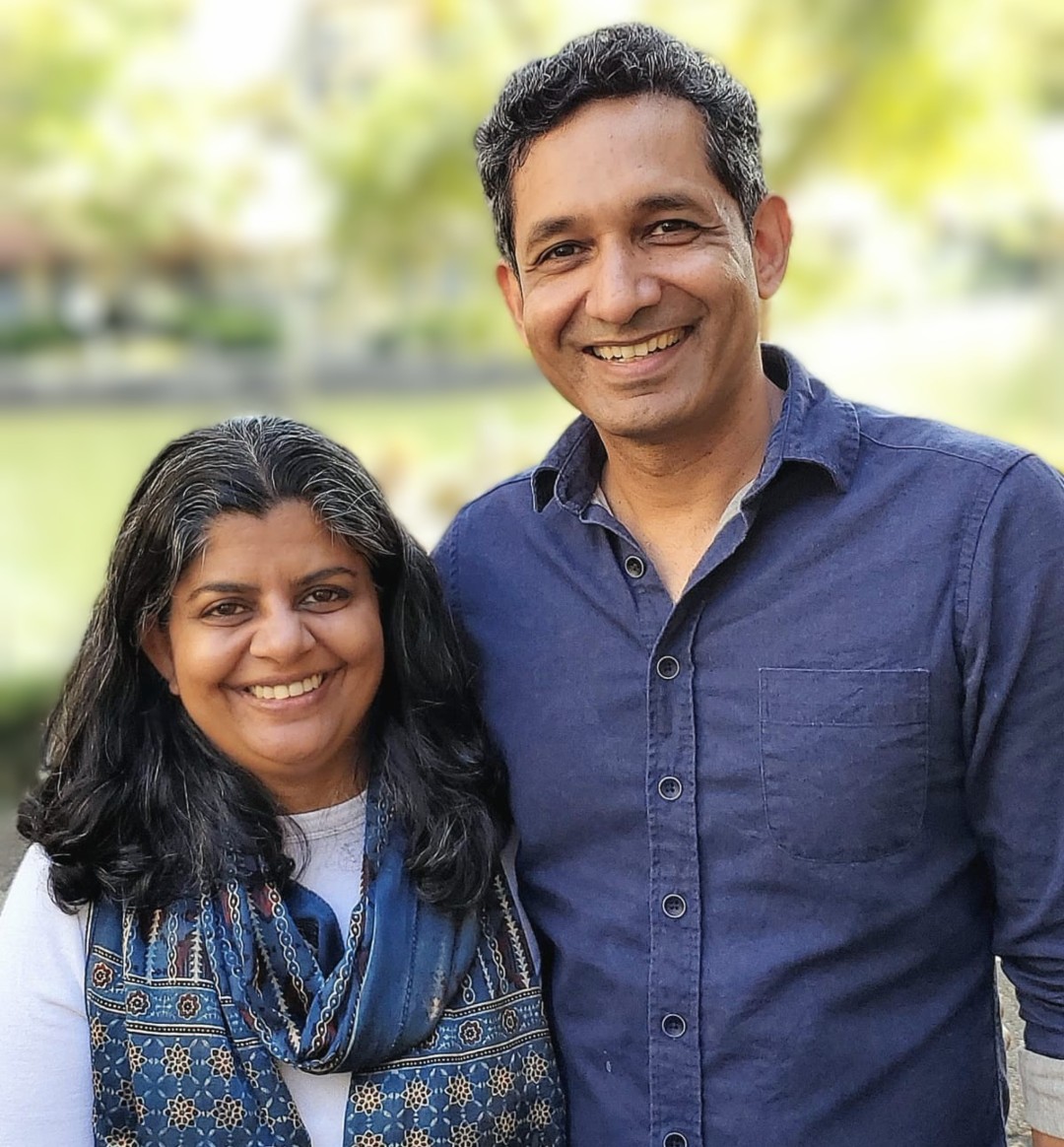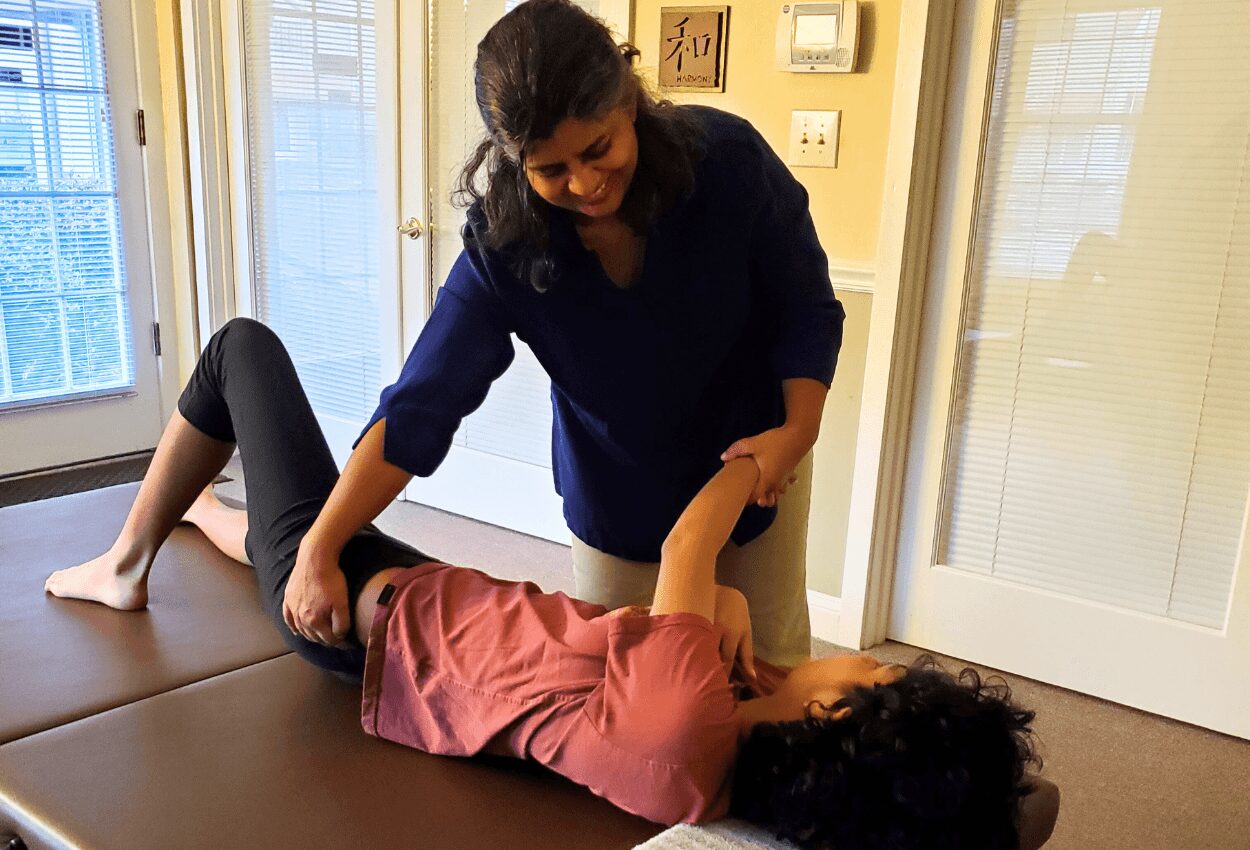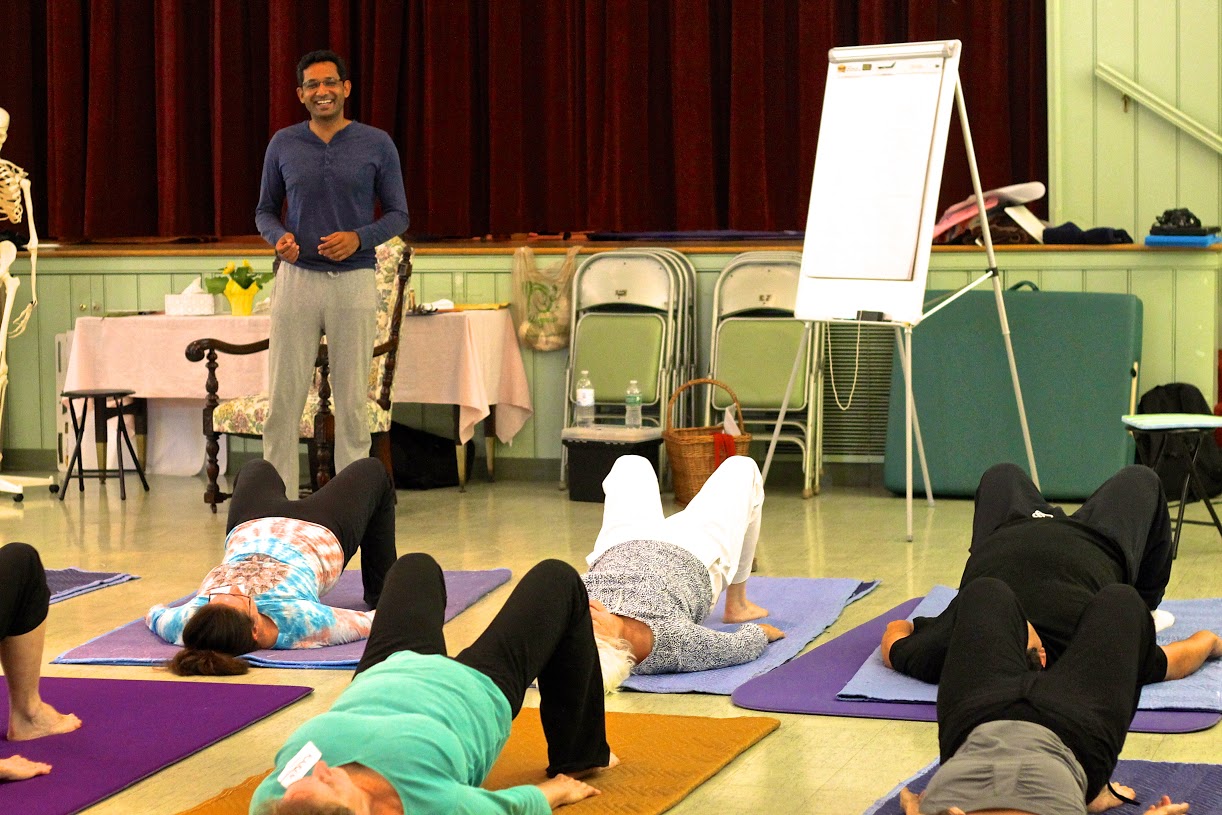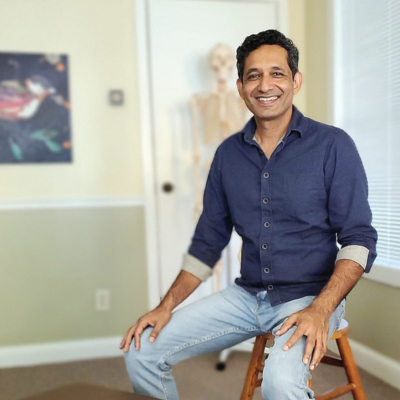

Today we’d like to introduce you to Atlanta Feldenkrais.
Hi Atlanta, please kick things off for us with an introduction to yourself and your story.
Ravi: I came across the Feldenkrais Method® when I was looking for ways to avoid sports related injuries. I am an avid tennis player and in 2009 I hurt my shoulder while doing a tennis serve. Though surgery was recommended I chose not to go for it because many surgically repaired shoulders continue to experience pain and discomfort.
In 2012, I discovered the Feldenkrais Method, which transformed my understanding of my injury’s root causes and my approach to healing. I found out that treating the site of injury wasn’t enough and most importantly, modifying my movement habits was the missing link in keeping me injury-free.
In my case, tight chest and neck muscles were pulling my shoulder out of alignment, restricting its movement. Through Feldenkrais lessons, I learned to release unnecessary tension, restoring alignment and allowing my shoulders to move freely and naturally.
Today, I have better shoulder mobility than I did before the injury and still enjoy tennis several times a week. My serve is still the strongest part of my game.
Initially, I had no intention of teaching Feldenkrais but I got so many benefits from this work that I decided to share it with others. I taught classes over the weekend while I was still at my corporate job. In 2019 I gave up my demanding career and started Atlanta Feldenkrais. Three years ago my wife, Aruna, finished her training and joined me as well. Both of us offer group and private Feldenkrais classes.
Aruna: While Ravi was doing his training, I didn’t quite understand what this method was about. All I knew was that it was fascinating enough for him to sacrifice all his vacation time for four years and fly to Baltimore several times a year to do the training.
Then I attended a workshop taught by Aliza Stewart, a senior Feldenkrais teacher and found it unlike any other kind of exercise or physical activity that I had done before.
I was lucky to have taken part in various physical activities during my school years in Delhi, India. Our school offered a wide range of sports, yoga and Taekwondo. As an adult I took Karate and Aikido classes as well.
Through all these activities I had a reasonably good body awareness but doing the Feldenkrais training made me understand my own body and movement at a much deeper level. A few years later, when I reached perimenopause and started dealing with some confusing, hard-to-diagnose issues, that awareness became a lifeline. Because I could really feel what was going on inside, I was able to ask the right questions and find the kind of medical care that truly supported me.
I wanted others, especially women who are going through the changes of midlife, to have a better sense of their own bodies and started teaching classes.
Would you say it’s been a smooth road, and if not what are some of the biggest challenges you’ve faced along the way?
Ravi: I started this full time practice just before COVID and that certainly wasn’t ideal as far as timing goes. But I’m happy that we’re past that difficult phase and that people have started coming for classes in person again.
The Feldenkrais Method is a niche approach and its emphasis on creating a safe environment for learning new movement patterns in an easy and gentle way is counter to the ‘no pain, no gain’ culture that we live in. Many people have a hard time understanding that an approach doesn’t have to involve a lot of grunt work to be effective.
Often people want something big and dramatic as a solution to their problems. Or they want to feel the ‘burn’ when they come for a hands-on lesson. It takes time to show them that an approach that relies on small, gentle movements can be very powerful and bring them long-lasting benefits.
Also, it takes time for people to understand that if they want lasting relief, they have to commit the time it takes to examine their habits in a curious and non-judgmental way and slowly replace them with habits that will serve them the most in the long run.
Aruna: Starting a practice as a husband-wife team was a little daunting, it is not easy to blend personal and professional roles. We get along well as a married couple and both of us had some apprehensions about how we’d work as business partners. We both have common interests, but we are very different in how we approach things. We’ve been married for over twenty years and have fairly well-defined family roles. It took some adjustment to see ourselves in a different context and to be respectful in the way we listen to each other’s opinions. Now, we try to use our different working styles as complementary strengths in our business.
When I work with students, I’m often asked whether they should use a certain device to correct their posture, or some other gadget for a specific purpose. Tools like that can be helpful but when we rely on them completely, we lose our ability to sense ourselves.
I guide my students to trust their own senses, which I feel is one of the most valuable skills they can develop. Some worry that if they pay too much attention to themselves, they will become overly sensitive, like the princess in Princess and the Pea. I tell them to be more Goldilocks instead and try different options so that they can notice what feels “just right”.
Appreciate you sharing that. What should we know about Atlanta Feldenkrais ?
We are a husband-wife team of Guild Certified Feldenkrais Practitioners® based in Atlanta and we offer both group and private classes.
At its heart, every Feldenkrais lesson is really a conversation with your nervous system, using movement as the language. Moshe Feldenkrais (D.Sc), the founder of this method, once said —
“Movement is life. Life is a process. Improve the quality of the process and you improve the quality of life itself.”
The quality of movement is something that we can all sense, it is real and familiar. When we learn to move with ease and awareness, we can use the quality of our movement to regulate the nervous system. Because movement gives us something clear and tangible to work with, it’s often easier to bring about changes through movement than, say, trying to control our thoughts and emotions.
Through our lessons we show how small changes can make movements easier and better coordinated. This has benefits for a wide range of people, from those facing serious challenges due to injuries or neurological issues to those wanting to maintain their activity levels and improve performance.
What sets us apart from others is that we take the time to get to the root of the problem. Often, it’s an accumulation of unhelpful habits over decades that causes pain in a specific place. We take the whole person into consideration and find ways in which the unhelpful patterns can be replaced by helpful ones using gentle, easy to do movements.
People we work with are our students, not our clients. The choice of the word ‘student’ is intentional because this is truly a way to learn about how you relate to your body and how you move through life.
Our role is to create the conditions in which our students can learn more about themselves, we don’t think of ourselves as figures of authority, but as facilitators in learning.
Are there any important lessons you’ve learned that you can share with us?
Ravi: When I started Atlanta Feldenkrais after many years in the corporate world, I made myself a promise: I would only offer something that had real value, something I believed in completely and that could genuinely help others the way it helped me. I had no interest in selling anything that felt fake or that I could not stand behind one hundred percent.
What surprised me after my Feldenkrais training was that the Method went far beyond easing physical discomfort. It gave me a clear and concrete way to understand myself, my patterns, my habits, and the way I respond to life.
Getting to know myself became the foundation for everything. It allowed me to direct my efforts toward what truly mattered and toward goals I actually wanted to pursue. As I internalized this process of self-inquiry and experimentation, I realized I now had tools I could apply anywhere to improve performance, increase comfort, and support my well-being in any situation.
That has been the most important lesson: Real change starts with knowing yourself, and from there everything becomes possible.
Contact Info:
- Website: https://atlantafeldenkrais.com/



Image Credits
Atlanta Feldenkrais













